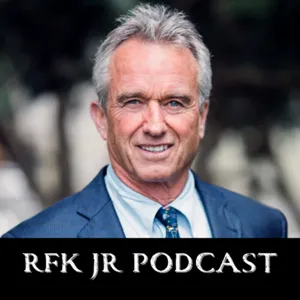Podcast Summary
DuPont's Knowing Contamination of a Town's Water Supply: DuPont's prioritization of financial interests over public health and the law led to the contamination of a town's water supply, raising ethical and legal questions.
In the late 1990s, DuPont, a chemical company, was found to have knowingly contaminated a West Virginia farmer's land and the town's water supply with a toxic chemical called PFOA, used to make Teflon. Despite knowing about the toxicity of PFOA since the 1960s, DuPont continued to dispose of it, prioritizing financial interests over the law and public health. This raises ethical and legal questions about a company's duty to its shareholders versus the law and community. The farmer, Wilbur Tennant, lost over 150 cows due to the contaminated water. The incident underscores the importance of transparency and accountability in corporate practices, especially when it comes to potential health hazards.
CFPs prioritize client interests: Study on DuPont's handling of toxic chemical PFOA highlights the importance of transparency and accountability in corporate practices
Certified financial planners (CFPs) are dedicated to putting their clients' interests first. If you're seeking a trustworthy financial advisor, look for a CFP. Another intriguing insight comes from a study on DuPont's handling of the toxic chemical PFOA. Researchers, including law professor Roy Shapira, uncovered internal documents from lawsuits that revealed DuPont's decision-making process regarding the use of PFOA. In a 1984 meeting, executives weighed the costs and benefits of investing in abatement, stopping the use of PFOA, or continuing to use it despite potential risks. Despite knowing about the chemical's toxicity and potential legal repercussions, they chose to continue using PFOA. This decision, while rational from a profit-maximizing perspective, raises ethical concerns and highlights the complexities of corporate decision-making. This study underscores the importance of transparency and accountability in corporate practices.
DuPont's Economic Perspective on Breaking the Law: DuPont saw potential legal costs as a business expense, considering future fines' value less due to time passage, but this perspective disregards reputational damage and ethical considerations.
Some companies may view the law as a cost of doing business, including the potential fines and settlements that come with breaking it. This perspective was exemplified by the DuPont case, where the company faced numerous lawsuits and fines over the years, including a $670 million settlement in 2017. From DuPont's perspective in 1984, it was uncertain whether they would be negligent and face such penalties. Even if they did, the future value of the money set aside to pay the fines was worth less due to the passage of time. Therefore, the costs of breaking the law could be outweighed by the potential profits, making it a rational decision from an economic standpoint. However, this perspective may be unsettling to many, as it seems to downplay the importance of following the law. It's important to note that this is just one perspective and that there are certainly other factors to consider, such as the potential reputational damage and ethical implications of breaking the law.
Efficiency in Economics Can Lead to Antisocial Consequences: Corporations use tools to hide info and engage in delay tactics, necessitating reduction of info asymmetries through whistleblowing, investigative journalism, short selling, and ethics education. Individual accountability can be enforced through personal liability for corporate misdeeds.
While economics doesn't inherently lead to bad choices, focusing on efficiency can result in antisocial consequences. Corporations have various tools to hide information and engage in delay tactics, making it crucial to reduce information asymmetries. Solutions include whistleblowing, investigative journalism, short selling, and teaching ethics in business schools. Additionally, individual accountability can be enforced through personal liability for corporate misdeeds, even for retired executives. These measures aim to correct the economic lesson that crime can pay. This episode was produced by Angel Carreras and Cooper Katz McKim, engineered by Sina Lofredo and Ko Takasugi Sherwin, fact checked by Sarah Juarez, and edited by Patty Hirsch. The Indicator is a production of NPR. This message comes from NPR sponsor, Mint Mobile.
Affordable wireless plans from Mint Mobile starting at $15 a month: Mint Mobile offers affordable wireless plans, Shopify enables businesses to launch online shops globally, both providing solutions for shoppers and entrepreneurs respectively
Amidst rising inflation, Mint Mobile is providing an affordable solution for premium wireless plans, starting at just $15 a month. Shoppers looking to switch to Mint Mobile can do so by visiting mintmobile.com/switch. Another key takeaway is the versatility of Shopify as a global commerce platform, enabling businesses to launch online shops and grow, regardless of their size or stage. Shopify offers a user-friendly experience, allowing users to bring their ideas without needing to code or design. Interested individuals can sign up for a $1 per month trial period at shopify.com/npr.






